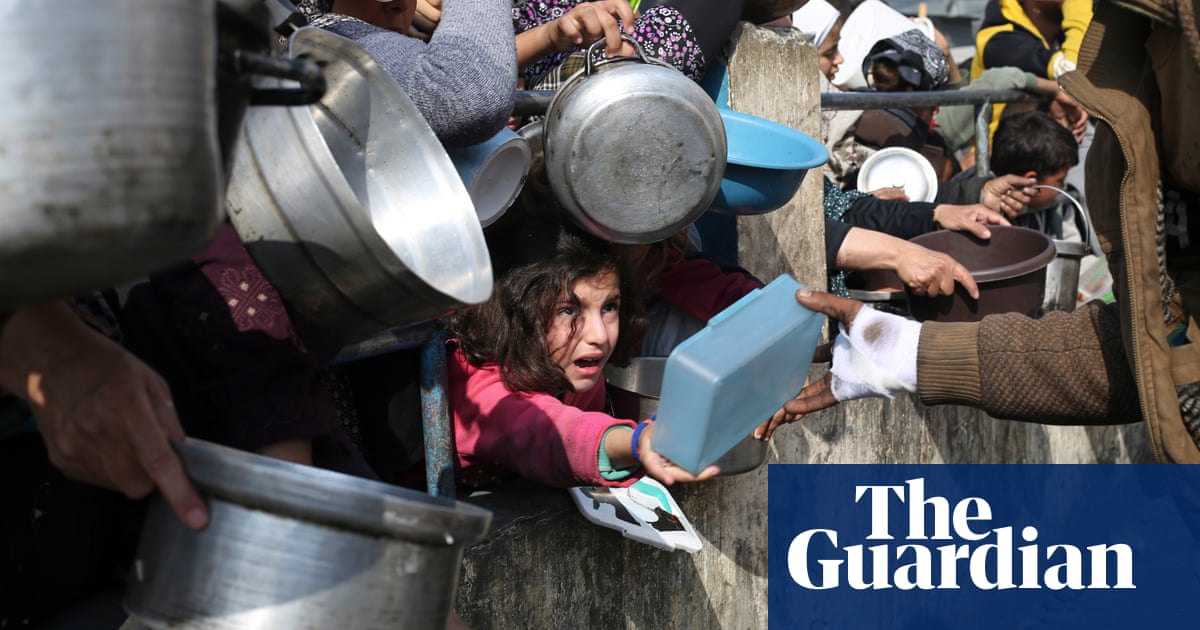The United Nations has suspended food distribution in the southern Gaza city of Rafah due to lack of supplies and insecurity.
It also said no aid trucks have entered the territory in the past two days via a floating pier set up by the US for sea deliveries, and warned that the $320m (£250m) project may fail unless Israel starts providing the conditions humanitarian groups need to operate safely.
Several hundred thousand people remain in Rafah after the Israeli military launched an intensified assault there on 6 May, but relief agencies say food aid deliveries have been reduced to a trickle.
Abeer Etefa, a spokesperson for the UN’s World Food Programme (WFP), warned that “humanitarian operations in Gaza are near collapse”. She said that if food and other supplies do not resume entering Gaza “in massive quantities, famine-like conditions will spread”.
The main agency for Palestinian refugees, Unrwa, announced the suspension of distribution in Rafah in a post on X, without elaborating beyond citing the lack of supplies. UN spokesperson Stephane Dujarric said the Unrwa distribution centre and the WFP’s warehouses in Rafah were “inaccessible due to ongoing military operations.”
When asked about the ramification of the suspension of distribution, Dujarric replied: “People don’t eat.”
Etefa said the WFP had also stopped distribution in Rafah after exhausting its stocks. It continues passing out hot meals in central Gaza and “limited distributions” of reduced food parcels in central Gaza, but “food parcel stocks will run out within days”, she said.
The United States has depicted the floating pier it erected on the Gaza coast as a potential route for accelerated deliveries. The first 10 trucks rolled off a ship on to the pier on Friday and were taken to a WFP warehouse. But a delivery on Saturday of 11 trucks was stopped by crowds of Palestinians who took supplies, and only five trucks made it to the warehouse. No further deliveries came from the pier on Sunday or Monday, Etefa said.
She said the problem of people taking supplies from convoys will continue without a consistent flow of aid to assure people “this is not a one-off event.”
“The responsibility of ensuring aid reaches those in need does not end at the crossings and other points of entry into Gaza – it extends throughout Gaza itself,” she said.
The UN agency is now re-evaluating logistics and security measures and looking for alternate routes within Gaza, said Etefa. The WFP is working with the US Agency for International Development to coordinate delivery of food from the new US route.
The warning came as Israel seeks to contain the fallout from a request by the chief prosecutor of the world’s top war crimes court for arrest warrants for Israeli and Hamas leaders.
The UN says about 1.1 million people in Gaza – nearly half the population – face catastrophic levels of hunger and that the territory is on the brink of famine.
The crisis in humanitarian supplies has worsened in the two weeks since Israel launched an incursion into Rafah on 6 May, vowing to root out Hamas fighters. Troops seized the Rafah crossing into Egypt, which has been closed since. As of 10 May, only about three dozen trucks made it into Gaza via the nearby Kerem Shalom crossing from Israel because fighting makes it difficult for aid workers to reach it, the UN says.
Israeli officials say they place no restrictions on the amount of aid going through the crossings. Small numbers of aid trucks continue to enter northern Gaza from Israel, but aid groups say they represent just a fraction of the supplies needed.
At the same time, fighting has escalated in northern Gaza as Israeli troops conduct operations against Hamas fighters, who the military says regrouped in areas already targeted in offensives months ago.
One of the main hospitals still operating in the north, Kamal Adwan, was forced to evacuate after it was “targeted” by Israeli troops, the Gaza Health Ministry said. About 150 staff and dozens of patients fled the facility, including intensive care patients and infants in incubators “under fire from shelling”, it said. The Israeli military did not immediately reply to requests for comment.
The nearby Awda hospital has been surrounded by troops the past three days, and an artillery shell hit its fifth floor, the hospital administration said in a statement Tuesday. A day earlier, the international medical aid group Doctors Without Borders said Awda had run out of drinking water.

